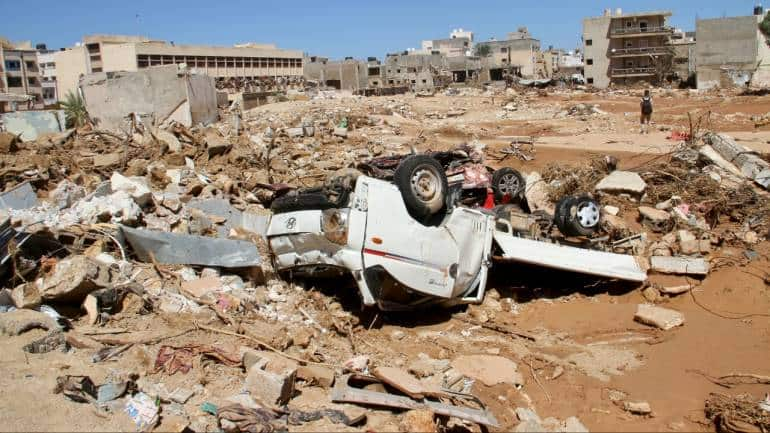The situation described in the news article is indeed tragic and highlights the devastating impact of flooding on Libya. Here are some key points to note from the article:
-
High Casualty and Displacement Numbers: The flooding in Libya has resulted in a significant loss of life, with more than 11,000 people reported dead. Additionally, hundreds of thousands have been displaced from their homes due to the floodwaters.
-
Infrastructure and Property Damage: The satellite images reveal that large parts of the country have been submerged, leading to the destruction of roads, bridges, homes, and businesses. This extensive damage is a major concern for the affected population.

-
Agricultural and Livestock Impact: The flooding has also caused substantial damage to crops and livestock, raising concerns about potential food shortages in the country. This could lead to a food crisis for the people of Libya.
-
UN Aid Appeal: The United Nations has made an appeal for $250 million in aid to assist Libya in responding to the flooding and preventing a humanitarian crisis. The aid is expected to cover the basic needs of 1.3 million people, including food, water, shelter, and healthcare.
-
Causes of Flooding: The flooding has been attributed to a combination of factors, including heavy rainfall, poor drainage systems, and low-quality infrastructure. The ongoing conflict in Libya has also hampered the country's ability to respond effectively to such disasters.
-
Long-Term Impact: The United Nations warns that the flooding's consequences will be long-lasting, as it will take years to rebuild the damaged infrastructure and help those affected regain their livelihoods.
-
Economic Impact: Beyond the immediate humanitarian crisis, the flooding is expected to have a significant impact on Libya's already struggling economy. High unemployment and inflation are likely to worsen due to the disaster.
-
Government Response: The Libyan government has declared a state of emergency in the affected areas and has enlisted the military to assist with relief efforts. However, they face challenges such as resource shortages and the ongoing conflict within the country.
-
International Support: The international community has pledged its support to Libya in dealing with the flooding crisis, but more aid and assistance will be required to help the nation recover from the extensive damage.
This news underscores the need for immediate humanitarian aid and long-term support to help Libya cope with the aftermath of this devastating flood. The situation highlights the vulnerabilities of regions prone to natural disasters, especially in the context of conflict-affected areas.
.png)
.png)
